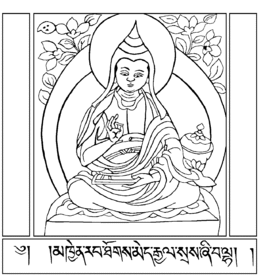Photo credit: krosseel from morguefile.com
There's nothing that does not grow light
through habit and familiarity,
putting up with little cares,
I'll train myself to bear with great adversity.
I've been working with these lines from Shantideva's Guide to the Bodhisattva's Way of Life for many years now. In order to keep them with me daily, I chant them silently to myself as I brush my teeth every night before bed.
Sitting here now, I can see where this teaching is a gateway into an utter calm and peace. All of those "little cares" that arrive in our lives have the ability to muck things up greatly, if we can't meet them as they are in the moment. Meeting them, however, isn't mere acceptance or some kind of resignation. It's not putting up with; it's allowing flow. Accepting what is in one breath, and then doing what you're called to do in the next.
In the cycle of samsara, the pain in your back during meditation, for example, can easily lead to tension, and then irritation, and then some kind of acting out. A few nasty words from some passerby on the street can easily lead to your own shouting, an escalation of conflict, and in some sad cases, violence and even death.
Many people come to Buddhism seeking calm and peace, but don't really understand what calm and peace actually are. And so whenever something disrupts what we've deemed to be calm and peace, we get upset and our lives are overturned.
I used to meditate like mad, associating calm with boredom, and thinking zazen was kind of an endurance contest I had to win somehow. Seems to me the "peace" I sought was otherworldly, some hyper chill state that couldn't possibly be located in the middle of this chaotic, suffering filled world.
In this, there was no room for the world to fully enter, to be "confirmed by the ten thousand things" as Dogen once said.
Things "growing light" does not depend upon outer conditions. As a social activist, I seek a more just, eco-centric, and peaceful world. However, if I get too attached to whatever is "lacking" now, or whatever vision I have for "the future," the flow of fully living stops. And the synergy of accepting what is and taking the next called for step can't happen.

